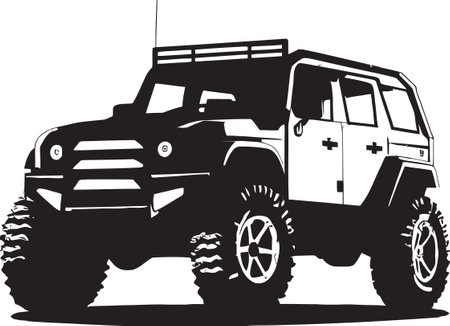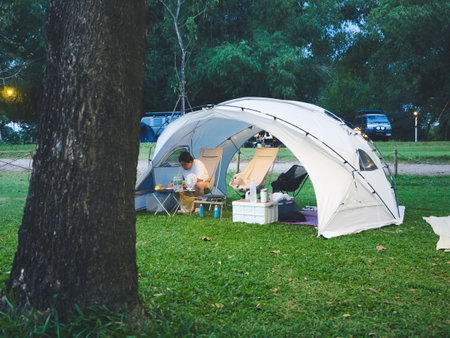Introduction to UK Campervan Base Vehicles
When it comes to converting a van into your dream camper, choosing the right base vehicle is absolutely essential—especially here in the UK, where our roads, parking spaces, and driving habits present unique challenges. Unlike some other countries with wide highways and endless laybys, British roads are often narrow, winding, and lined with stone walls or hedges. Parking can be tight, especially in cities or quaint rural villages, and many campsites have strict size restrictions. On top of that, fuel prices and emissions zones (like London’s ULEZ) mean efficiency and environmental considerations play a bigger role than ever before. In this guide, we’ll break down what makes a great base vehicle for a UK campervan conversion, from the classic panel van to box vans and more specialist options. Whether you’re planning weekends in the Lake District or longer adventures across Scotland and Wales, making the right choice now will save you headaches later and ensure your camper suits both your travel style and the realities of British motoring.
2. Panel Vans: Popular Choices and Practicality
When it comes to campervan conversions in the UK, panel vans remain the most popular choice for good reason. Their blend of versatility, availability, and practicality makes them an ideal base for both first-time converters and seasoned vanlifers. In this section, well take a closer look at the three most popular models on British roads: the Ford Transit, VW Transporter, and Mercedes Sprinter. Each brings its own strengths to the table, so lets compare their features and see how they stack up for campervan projects.
Top Panel Van Options in the UK
| Model | Key Strengths | Typical Conversion Uses | Real-World Experience |
|---|---|---|---|
| Ford Transit | Excellent value for money, widespread availability of parts, various sizes (SWB, MWB, LWB), good driving comfort. | Ideal for families or couples wanting more interior space; popular for full-size camper builds with fixed beds and washrooms. | Owners often highlight ease of repair and affordable maintenance; praised for reliability on long UK road trips. |
| VW Transporter | Iconic design, strong resale value, compact yet spacious interior, great handling. | Favoured by solo travellers or couples; perfect for weekenders and surf vans due to its manoeuvrability. | Loved for its community spirit—plenty of clubs and support online; higher price point but holds value well. |
| Mercedes Sprinter | Robust build quality, high roof options, excellent payload capacity, advanced safety tech. | Best suited to luxury or off-grid conversions; ample room for standing height layouts and premium amenities. | Praises for motorway comfort and fuel economy; considered a top pick for long-term touring across the UK and Europe. |
Why Panel Vans Dominate UK Conversions
The flexibility offered by panel vans is unmatched—they come in multiple lengths and heights to fit any conversion dream. Access to spare parts is never an issue in the UK, keeping ongoing costs down. Plus, these vans blend in well on British roads, making wild camping or stealth camping much easier than with larger motorhomes.
Practical Considerations from Real Owners
If you ask experienced converters around Britain, theyll tell you that choosing the right panel van comes down to your needs. The Ford Transit is unbeatable for budget builds without skimping on space. The VW Transporter excels if you want something easy to park in Cornish villages or Scottish cities. Meanwhile, the Mercedes Sprinter shines when your ambitions run toward luxury or extended European adventures. Whatever your pick, youre joining a vibrant UK vanlife community keen to share tips—and maybe even a cuppa at your next campsite stop!

3. Box Vans and Luton Vans: Space, Comfort and Versatility
If you’re aiming for a truly bespoke campervan experience in the UK, it’s hard to ignore the advantages offered by box vans and Luton vans. These vehicles are built with a square, upright cargo area that immediately sets them apart from traditional panel vans, making them a strong contender for those prioritising space and versatility in their conversion project.
Room to Breathe: Headroom and Floor Space
One of the standout features of box vans and Luton vans is their exceptional headroom. The vertical walls and flat ceilings mean you can install full-height wardrobes, roomy showers or even bunk beds with ease—something that’s often a squeeze in lower-roofed panel vans. For taller vanlifers or families who want to move about without constantly stooping, this is a game-changer.
Custom Layout Potential
With their straight-sided design, box vans and Luton vans are like a blank canvas for your layout ideas. Whether you fancy an open-plan living space, a fixed double bed at the back, or a designated play area for the kids, these vehicles offer unmatched freedom to build a home that suits your needs. You’ll also find it easier to fit domestic-style furniture and appliances—a real plus if you’re planning long-term adventures or full-time vanlife around Britain.
Family-Friendly Conversions
For families seeking to explore the UK’s national parks or coastlines, the extra interior width means you can comfortably accommodate multiple sleeping berths and storage solutions. You’ll have room for everything from prams to paddleboards, all secured inside the van. Plus, the large rear doors make loading up at home or on British campsites hassle-free.
Navigating British Roads and Campsites
It’s worth noting that while box vans and Lutons excel in space, they are generally larger than panel vans. Manoeuvring through narrow country lanes or tight village streets can be trickier—so practice makes perfect! However, most UK campsites are well set up for these vehicles, especially those welcoming caravans and motorhomes.
The Bottom Line
If maximum comfort, flexibility and storage are high on your list—and you’re not fazed by driving something bigger—box vans and Luton vans could be your ideal base vehicle for a British campervan conversion. They’re especially suited to families or anyone considering life on the road full-time across the diverse landscapes of the UK.
4. Other Vehicle Types: Minibuses, Caravans and Beyond
When considering a UK campervan conversion, it’s easy to focus on popular options like panel vans and box vans. However, there are several alternative base vehicles that might just tick your boxes, especially if you want something a bit different or need specific features. Let’s take a closer look at options such as minibuses, ex-council vehicles, and even old caravans – all of which present unique perks and challenges for British vanlife enthusiasts.
Minibuses: Roomy and Ready-Made Windows
Minibuses are a cracking choice for those who prioritise space and natural light. Many come with full-height windows already installed, which is perfect for scenic views while parked up in the Lake District or along the Cornish coast. They also often have higher roofs than standard vans, making them ideal for taller folk or anyone dreaming of standing upright inside their camper. On the flip side, converting a minibus may mean dealing with extra seating rails or public service fittings that require removal. Insurance can also be trickier compared to standard panel vans.
Ex-Council and Utility Vehicles: Tough and Well-Maintained
Ex-council vehicles – think highways maintenance vans or old library vans – are built tough and often come with regular servicing records, giving peace of mind about reliability. These vehicles might already be kitted out with shelving, electrics or reinforced floors, saving you some work (or providing inspiration for your own layout). However, they can sometimes have higher mileages or quirky layouts not designed for leisure use.
Caravans: Static Comfort with Unique Challenges
While traditional caravans aren’t self-powered like vans, some people opt to convert static or towable caravans into semi-mobile campers or even use caravan bodies mounted onto flatbed trucks. This route offers home-like comfort and more living space but comes with challenges around towing laws, parking restrictions in the UK, and less flexibility when it comes to wild camping spots.
Comparison Table: Alternative Base Vehicles at a Glance
| Vehicle Type | Main Advantages | Main Challenges |
|---|---|---|
| Minibus | Spacious interiors Factory-fitted windows Higher roofs |
Extra fittings to remove Potential insurance hurdles |
| Ex-Council Vehicle | Tough build Well-maintained Existing electrics/shelving |
High mileage Unusual layouts |
| Caravan (towable/static) | Home-like comfort More living space |
Towing/parking rules Less mobile/flexible |
UK-Specific Considerations
If you’re thinking about these alternatives, always check DVLA requirements regarding reclassification, as well as MOT standards for converted vehicles. Also bear in mind local authority parking bylaws—especially important in city centres or coastal hotspots where restrictions on larger or non-standard vehicles can be tight.
5. Buying in the UK: Used Market Tips and Legal Considerations
If you’re planning your campervan conversion in the UK, sourcing the right base vehicle is a crucial step. The British used van market is vast, but knowing where to look and what to check can make all the difference between a dream project and a costly headache.
Where to Source Your Base Vehicle
Start with reputable platforms such as Auto Trader, Gumtree, and eBay Motors, which are widely used across the UK. Local dealers and specialist van sellers can offer added peace of mind with warranties and service history. Don’t overlook ex-fleet sales or auctions for bargains, but be prepared to act fast and do your research.
MOT: What You Need to Know
Every vehicle over three years old in Britain must have a valid MOT certificate, which checks roadworthiness and environmental standards. When viewing a potential van, always ask for the most recent MOT report. Look out for advisory notes as they indicate issues that may soon require attention. A long MOT is a bonus, but don’t rely on it alone; invest in an independent mechanical inspection if possible.
Insurance Considerations
Insuring a van intended for conversion can be tricky. Many mainstream insurers are wary of self-build projects, so seek out specialists like Adrian Flux or Brentacre who understand campervan conversions. Make sure you inform them of any modifications; failing to declare changes can invalidate your cover. Also, consider temporary insurance if you need to drive your new purchase home before work begins.
Avoiding Common Pitfalls
The UK’s wet climate means rust can be a significant issue, especially on older panel vans. Always check sills, wheel arches, and undercarriage for corrosion. Verify the vehicle’s mileage with its service history and ensure the V5C logbook matches the seller’s details. Be wary of vans with suspiciously low prices or incomplete paperwork—if it sounds too good to be true, it probably is.
Final Word: Do Your Homework
Taking time to research the used market, understanding legal requirements like MOT and insurance, and thoroughly inspecting each potential purchase will help set your campervan project off on the right foot in the UK. Happy hunting!
6. How to Match Your Vehicle to Your Lifestyle
Choosing the ideal base vehicle for your campervan conversion is not just about engine size or storage capacity – it’s about how well it fits your everyday adventures and travel style. Let’s break down typical British lifestyles and help you pinpoint which van will truly work for you.
Weekend Getaways
If you’re someone who loves spontaneous escapes to the Lake District or the Cornish coast, a compact panel van such as a VW Transporter or Ford Transit Custom might be spot on. These vans offer an excellent balance between comfort and manoeuvrability, making them easy to park in tight village streets or scenic car parks. Their fuel economy also means those last-minute trips won’t break the bank.
Festival Goers
For regulars at Glastonbury, Boomtown, or local folk festivals, space and practicality are key. A medium wheelbase panel van gives you enough room for mates, camping gear, and muddy boots without being too cumbersome to navigate crowded festival fields. Consider adding pop-tops or awnings for extra living space during those unpredictable British summer showers.
Wild Camping Enthusiasts
If you’re keen on wild camping in Scotland or exploring remote spots in Wales, stealth is crucial. Opt for a standard panel van with minimal external modifications so you can blend in when parked up overnight. Look for models with good ground clearance if you’ll be tackling rough tracks, and prioritise insulation for year-round comfort in all weathers.
Family Adventures
Larger families need more space and versatility. Here, a box van (like a Peugeot Boxer or Mercedes Sprinter LWB) comes into its own. The square shape maximises interior space for bunk beds, kitchenettes, and even a small bathroom – perfect for longer road trips during school holidays. Swivel seats and modular furniture help create a comfortable living area on rainy days.
Urban Explorers
If most of your travels take you to city breaks in places like Edinburgh, Bristol, or Manchester, opt for a short wheelbase panel van. These are less intimidating around city centres and easier to fit into multi-storey car parks – but still offer enough room for two people to sleep comfortably.
Your Next Step
The best advice? List your must-haves based on your typical trips: how many people you travel with, the length of stays, favourite destinations, and whether you prioritise comfort over agility. Test drive a few options before settling – it’s the British way to try before you buy!
7. Final Thoughts: Navigating the UK Campervan Scene
Choosing your base vehicle is just the start of your campervan journey, but it’s arguably the most pivotal decision you’ll make. Whether you’re leaning towards a nimble panel van, a roomy box van, or something a bit more quirky, remember to prioritise reliability, ease of maintenance, and suitability for British roads and campsites. From my own experience and countless chats with fellow converters at UK meets, here are the key takeaways: think about long-term practicality—access to spares, insurance costs, and MOT requirements can vary widely between models. Consider your lifestyle: if you’re planning to wild camp in the Lake District or squeeze into Cornish car parks, compactness might trump sheer space. On the other hand, if festivals and family trips are on your agenda, extra headroom and storage could be invaluable. Also, don’t underestimate the power of community; UK campervan forums and Facebook groups are treasure troves of advice and real-world reviews specific to our unique driving conditions. Trends come and go (box vans are on the rise thanks to TikTok tours), but solid basics like good insulation, proper electrics, and safe layouts always win out. My best advice? Get hands-on before committing—hire different styles for a weekend or visit local conversion shows. Take notes from those who’ve done it before you; there’s no substitute for boots-on-the-ground knowledge when navigating the ever-evolving UK campervan scene.


